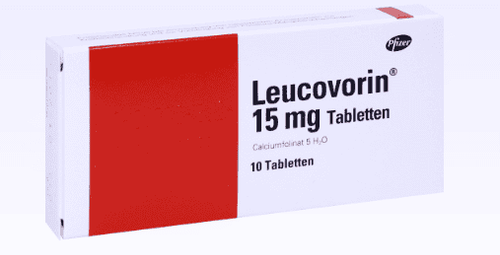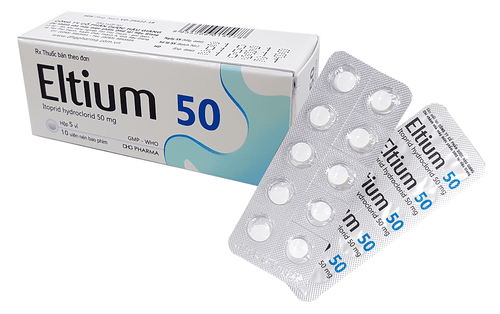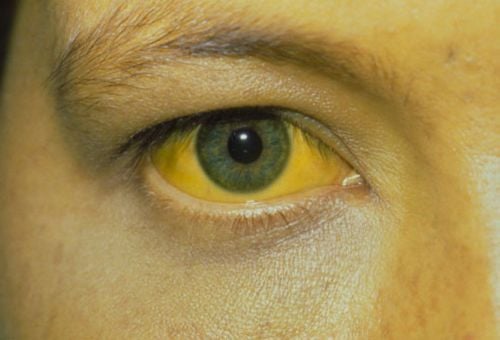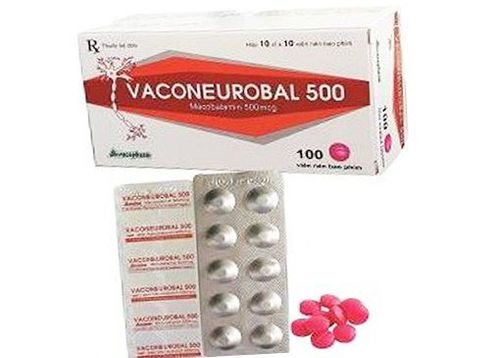This is an automatically translated article.
Article written by Master, Doctor Mai Vien Phuong - Head of Gastrointestinal Endoscopy Unit - Department of Medical Examination & Internal Medicine - Vinmec Central Park International General Hospital
Stomach cancer is a condition in which cancer cells develop in the stomach. This is a dangerous disease of the gastrointestinal tract. Early screening plays an important role, helping to prevent and bring more effective treatment for early stage stomach cancer.
1. Stomach cancer is a global disease
Gastric cancer (GC) is the 5th most common cancer worldwide, after lung, breast, prostate and colon cancers.The incidence of gastric cancer has geographical differences, the incidence is high in the eastern regions of Asia and Europe (> 70%), in developing countries such as Korea, Japan Japan and China; but rare in North America and Western Europe.
The implementation of a healthy diet and effective eradication of Helicobacter pylori (H. pylori) will help reduce the incidence of the disease. At the same time, the early diagnosis, endoscopy and biopsies combined with surgical procedures for early gastric cancer or late stage cancer will result in higher treatment efficiency.
2. Biological risk factors for stomach cancer
2.1. H. pylori H. pylori infection has been reported to cause gastritis - peptic ulcer, gastric carcinoma and lymphoma.
H. pylori disrupts the gastric barrier and causes a chain of events starting with acute gastritis, chronic gastritis, atrophic gastritis, intestinal metaplasia and dysplasia, eventually leading to cancer epithelium letter. But only about 5% of people infected with H. pylori develop cancer.
2.2. Dietary factors High salt diet, eating large amounts of smoked foods, alcoholism, smoking will increase the risk of stomach cancer, cause damage to the lining of macrophages and make dietary nitrate metabolism.
On the other hand, a diet rich in green vegetables, fresh fruits, and rich in vitamin C has a protective role against the risk of stomach cancer.
2.3 Obesity Being overweight or obese can cause damage to the proximal stomach, cause problems like acid reflux and heartburn, and contribute to cancer. This weight gain can also affect levels of certain hormones like testosterone and estrogen and increase insulin levels, leading to inflammation, and all of these factors are linked to an increased risk of cancer.
2.4. Ethnicity The incidence of stomach cancer tends to vary between ethnic groups. For example, Japanese residents of the United States have a much lower incidence of the disease than native Japanese, and the trend is opposite among African-Americans compared with people of African descent.
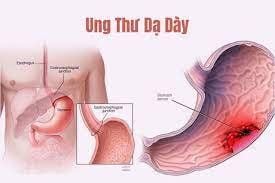
2.5. Genetics Many genetic and epigenetic variations are involved in gastric carcinogenesis. Microscopic cell instability (MSI), chromosomal instability (CIN), activation/inhibition of oncogenes.
MSI - a genomic defect representing defects in DNA replication (hMLH 1 - mismatch repair gene) accounts for about 13-44% of gastric cancers.
MSI is also associated with intestinal metaplasia, a premalignant condition. Reduced propensity to invasion and nodular metastasis in MSI due to mutations in TGF-β, IGFII and BAX genes. CIN plays an important role in sporadic gastric cancers. Several factors from N-nitroso compounds, smoking, and H. pylori to DNA repair mechanisms as well as defects in cell cycle regulation all contribute to CIN. Activation of the oncogene Erb-B2 has a role in gastric adenocarcinoma while c-met (HGFR-encoding oncogene) and FGFR2 gene amplification (via Erb-B3 overexpression) /PI3) plays a role in diffuse cancers. Inactivation of the p53 gene has been found in about 60% of cancers while mutations in the APC gene are seen in only a small percentage of early-stage cancers.
K ras gene mutations are rare and only seen in stage 4 disease. E-cadherin, a product of the CDH1 gene, has been found to be associated with advanced disease and has a poor prognosis. Similarly, abnormalities in cell cycle regulation (Cyclin E and CDK) together with changes in tumor suppressor gene expression also have a poor prognosis. There is evidence from the literature that genes associated with inflammatory mediators (interleukins, number 4-like receptors, human leukocyte antigens, phase I metabolic enzymes, etc.) letters.
2.6. Anemia and EBV infection Stomach cancer is a rare complication of pernicious anemia (PA). Multifocal atrophic gastritis not limited to the gastric body is at higher risk. Intestinal adenocarcinoma type and distant tumors are common, with risk proportional to duration of disease. An elevated pH that allows chronic H. pylori infection may be a cause. In common variable immunodeficiency, which occurs in 10% of patients with PA, the normally weak mucosal defense mechanisms to prevent H. pylori infection exacerbate gastric cancer risk.
EBV virus may be a probable cause for gastric cancer in PA in about 9% of cases. The lack of an acidic environment together with a damaged gastric mucosa (due to chronic inflammation) favors EBV coloration. EBV is known to be involved in earlier stages of mucosal transformation based on the presence of monoclonal viral segments in EBV-positive tumor cells. Increased risk of stomach cancer caused by EBV in smokers (RR = 2.4). EBV-positive tumors tend to occur in the gastrointestinal tract and are more frequent in postoperative patients.

3. Can early stage stomach cancer be cured?
When being diagnosed with stomach cancer, the first thing the patient asks and wants the answer to is “is stomach cancer curable? ". Accordingly, stomach cancer is divided into 5 stages, depending on the size of the tumor and the degree of metastasis of the cancer cells. Stomach cancer in the early stages can be cured, but the disease is often detected at a late stage, the progression is complicated and serious, the survival rate of patients is also very low. In this case, doctors will combine other treatments to improve symptoms for the patient. In summary, the overall incidence of stomach cancer is decreasing but the incidence of heart cancer is increasing with a documented association with obesity. Screening strategies adopted by countries such as Japan and South Korea have helped to reduce the burden of the disease and reduce mortality. The prevalence of H. pylori infection in developing countries needs to be addressed with adequate eradication measures coupled with early screening and healthy dietary practices.
Currently, early cancer screening is considered the perfect measure in the timely detection and treatment of all types of cancer. Reduce the cost of treatment and especially reduce the mortality rate in patients. Vinmec International General Hospital always deploys and introduces to customers the Early Cancer Screening Package at Vinmec - Peace of mind to live well to help with gene testing, imaging, testing of biomarkers to detect tumors you early.
Choosing the Early Cancer Screening Package at Vinmec - Peace of mind at Vinmec, customers will get:
Only one gene test can assess the risk of 16 common cancers in both men and women ( Lung cancer, colorectal cancer, breast cancer, pancreatic cancer, cervical cancer, stomach cancer, prostate cancer,...). Early detection of early signs of cancer through imaging, endoscopy and ultrasound. The operation is simple, careful and accurate. A team of well-trained specialists, especially in oncology, are capable of handling cancer cases. With a system of facilities, advanced and modern medical equipment and a team of doctors with deep expertise and experience, it will help the examination and treatment process of patients at Vinmec become faster with High efficiency, save cost and time.
Please dial HOTLINE for more information or register for an appointment HERE. Download MyVinmec app to make appointments faster and to manage your bookings easily.
References
Ferlay J SI, Ervik M, Dikshit R, Eser S, Mathers C, Rebelo M, Parkin DM, Forman D, Bray, F. GLOBOCAN 2012 v1.0, Cancer Incidence and Mortality Worldwide: IARC CancerBase No . 11 [Internet]. Lyon, France: International Agency for Research on Cancer; 2013. Available from: http://globocan.iarc.fr. 2012. Jung KW, Park S, Kong HJ, et al. Cancer statistics in Korea: incidence, mortality, survival, and prevalence in 2009. Cancer research and treatment : official journal of Korean Cancer Association. Mar 2012;44(1):11-24. Guggenheim DE, Shah MA. Gastric cancer epidemiology and risk factors. J Surg Oncol. Mar 2013;107(3):230-236. Febin John, Gastric Cancer: A Global Perspective, Epidemiology of Gastrointestinal Cancers,
3, April 2014 Practical Gastroenterology






